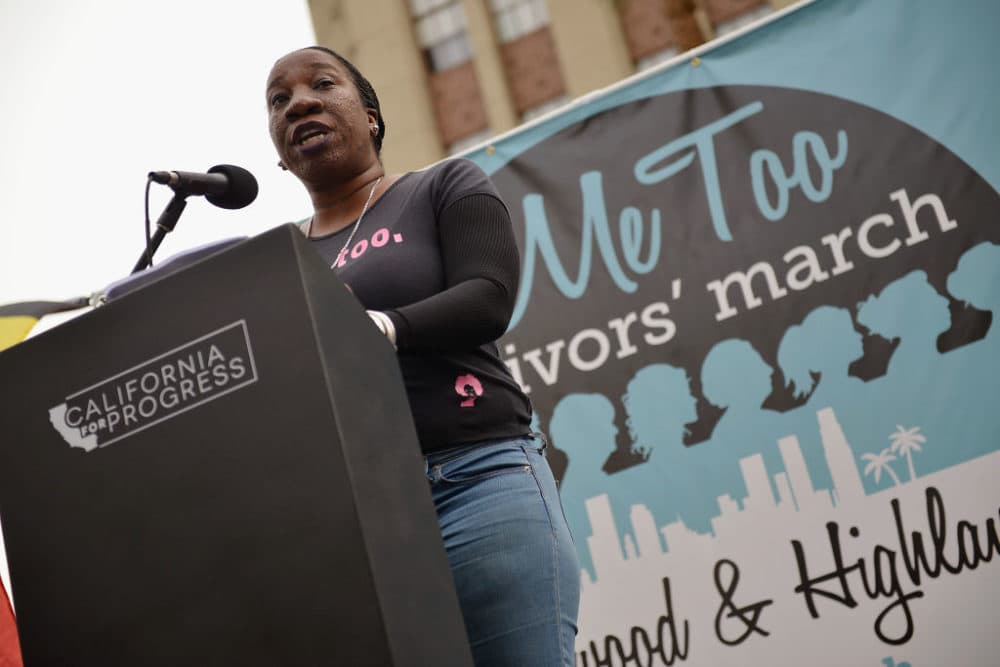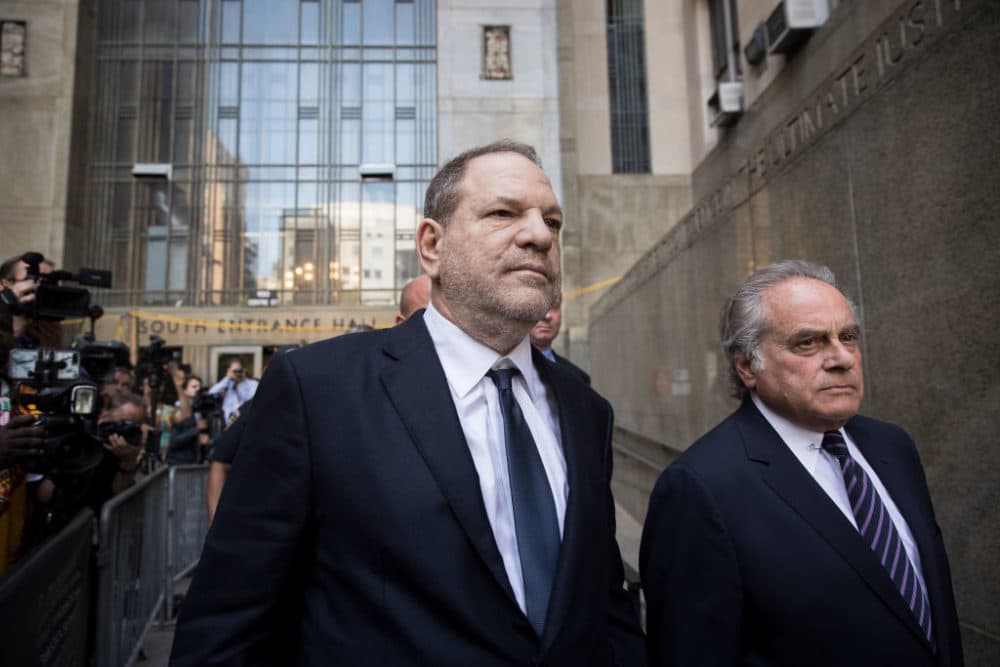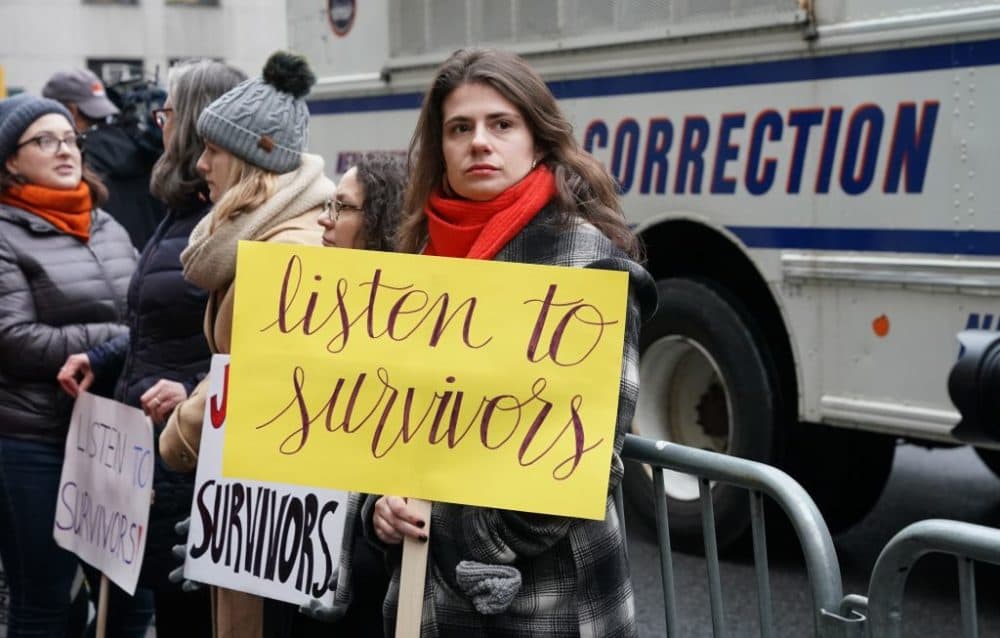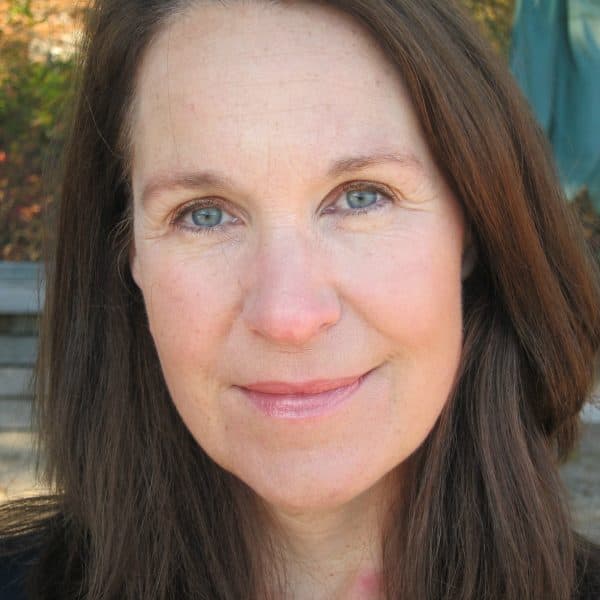Advertisement
Commentary
Five years on, #MeToo shows that survivors are more powerful together

Five years ago this month, the hashtag #MeToo went viral. Actress Alyssa Milano’s tweet in response to the New York Times investigation into Harvey Weinstein’s decades of sexual abuse brought a survivor-based movement to a worldwide audience. The Times exposé persuaded many of Weinstein’s victims to go on the record. And their message of survivor solidarity — “Me too” — propelled a global wave of silence breaking.
Powerful men soon found their impunity revoked: Weinstein, Matt Lauer, Bill Cosby, Louis CK, Charlie Rose, Bill O’Reilly. The movement migrated from Hollywood to politics, sports, workplaces and higher education. It was embraced in Spain, China, India and Australia, establishing a common reference for a new expectation of accountability. #MeToo gathered millions of individual accounts of sexual violence that had been effectively silenced through “he said/she said” into a credible collective witness. When “she said” became “we said,” the credibility calculus shifted.
After millennia of doubting all women, seemingly overnight, it became possible to at least believe some of them.
Five years on, #MeToo has not led to wholesale changes in law or policy. The legal protections that women need are still woefully inadequate. Many institutions still fail to offer the baseline protections survivors deserve. But that does not mean #MeToo has failed, because these are not the only measures by which it should be evaluated. To see where the movement can can go next, we need to understand where it has succeeded and fallen short.
It’s helpful to recall the origin of that compact phrase — “me too”— existed long before it became a hashtag. It was the brainchild of Black feminist activist and community organizer Tarana Burke, whose Baltimore-based movement, founded in 2006, is rooted in the power of empathy and identification to foster healing.

When Milano quoted Burke’s words in October 2017, it activated a powerful lineage. It resonated within a legacy of feminist activism and advocacy. The vast majority who responded were empowered to join a social movement of survivors. They had no specific interest in Weinstein or the celebrities coming forward to tell their stories — they didn’t retweet #StopWeinstein or some other Hollywood-centric hashtag. Instead, they responded personally with accounts of abuse. Their collective testimony — previously silenced by law enforcement, courts, employers and family members — was heard more clearly than ever.
Storytelling as a vehicle of survivor agency and social change is the defining element of the #MeToo movement. It shifted the arena of participation from courts to a broad cultural conversation. Suddenly, we could see and hear survivors in their own words, as they were demanding to be heard as authorities of their own experience. Just recall how Chanel Miller’s victim impact statement previewed how #MeToo would play out on the world stage.
Advertisement
#MeToo has not been without controversy or a backlash. The Amber Heard/Johnny Depp trial demonstrated how little things have changed. The trial revisited the worst tactics from Weinstein’s playbook: destroying victims through coordinated smear campaigns, normalizing intimate partner violence and muddying consent in ongoing relationships.
Even so, women must continue to look to the courts to bring abusers to justice. Some, like three graduate students at Harvard, have insisted that the law be fairly applied to the very victims it has historically neglected, and have sued the university for sexual harassment and retaliation, alleging that their efforts to report were thwarted.
We would also do well to look beyond the courts to community-based organizations, like Burke’s, for models of accountability and repair. As a response to trauma and the betrayal by the authorities and institutions charged with preventing and punishing abuse, #MeToo starts with what survivors need. Recovery is often rooted in creating a sense of safety. True safety requires a change in the conditions that enable and perpetuate sexual abuse.

Going forward, survivors’ needs and demands are clear: create transparent processes for reporting abuse, fair investigations and proportional penalties when harm has been established. These steps protect victims from being punished for speaking out, and prevent abusers and their enablers from hiding behind policies designed to limit institutional liability. They foreground due process, which survivors more typically find when journalists independently investigate allegations. And, when those allegations have been verified, we have to hold abusers accountable — even the ones who are famous, or likable, or a mixed bag.
Predictably, #MeToo has been maligned as nothing more than cancel culture. But even that allegation belies a twisted view of the abuse that has been tolerated, minimized and excused for millennia — and interwoven with other durable forms of inequality and oppression — especially when committed by powerful white men.
The eradication of sexual violence #MeToo sought was aways aspirational, but its continued existence does not mean the movement has failed. Instead, we ought to think of #MeToo as a resource or a tool. It’s not the sole measuring stick of progress, or an institution to exalt or blame, but a common term that connects survivor credibility with accountability.
#MeToo is a term that rightly defines harassment and abuse as harmful, and believes in consequences for it. It’s a framework that enables survivors to be heard who are otherwise at the mercy of a hostile public, indifferent institutions and a demonstrably biased legal system. It shows that survivors are more powerful together.
